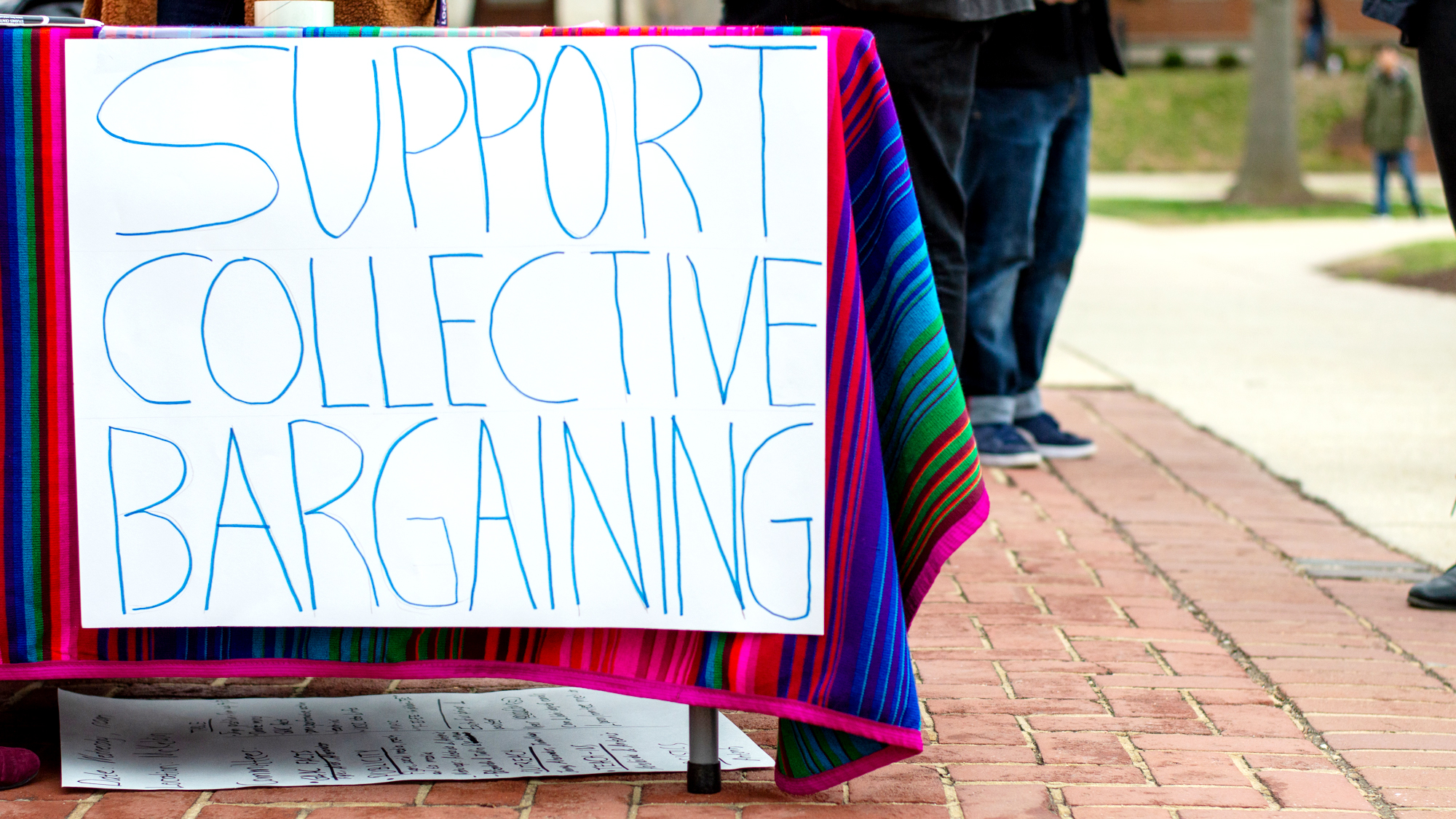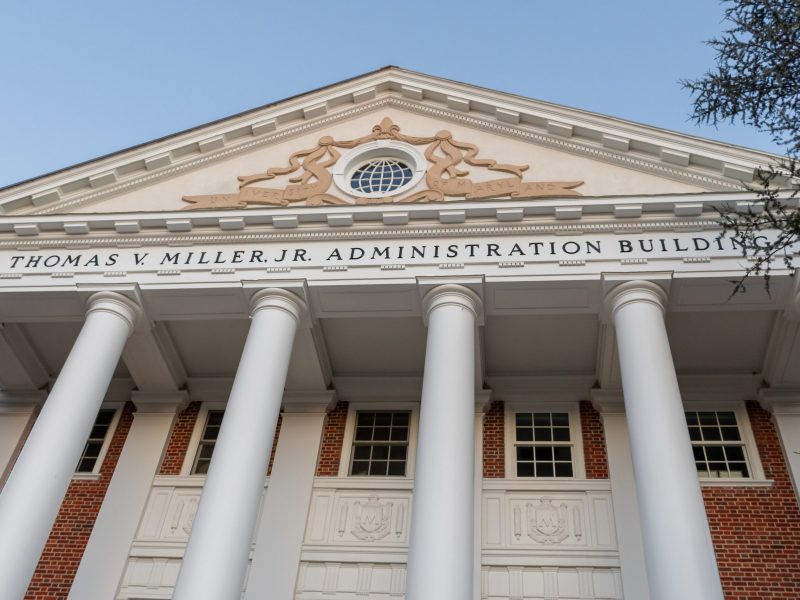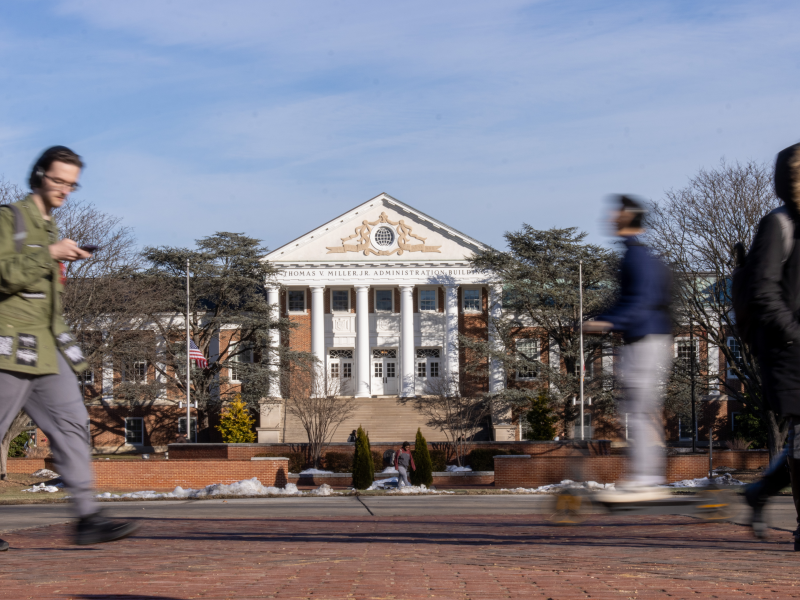Views expressed in opinion columns are the author’s own.
It is no secret that the University of Maryland runs on graduate student labor. So why won’t this university recognize our right to organize as workers?
Graduate workers receive little support from the university, which deals out pitifully low stipends, discriminatory international student fees and offers little to no recourse if something goes wrong with our advisors. These are some issues that this university’s Graduate Labor Union aims to address.
Graduate workers deserve a union. A recognized bargaining unit is a basic right that University System of Maryland staff, professors at Maryland’s community colleges, faculty and graduate workers at many esteemed peer institutions have already won.
Graduate workers at Michigan, Rutgers, Minnesota, NYU and more have unionized with great success. And graduate workers at all private universities already have collective bargaining rights, a fundamental step in forming a union. However, under Maryland state law, graduate employees have long been prohibited from collective bargaining.
While the University of Maryland is not legally required to engage in collective bargaining with graduate workers, it can and should do so for the sake of all students and our shared learning conditions.
A full-time GA at this university works 20 hours per week on top of a full-time class schedule or dissertation research. This arrangement alone fills up graduate workers’ calendars, but our stipends are so low that additional part-time jobs are often necessary to supplement GA stipends.
Many graduate workers, like me, work additional jobs on top of our GA positions to make ends meet, limiting leisure time to nearly zero and only barely easing financial stress. If we are meant to be students and not workers, then why are our learning conditions so poor?
International GAs are not allowed to work more than 20 hours per week to earn extra money. On top of that, more than 100 international graduate students recently had their health insurance waivers revoked by the university, many of whom made their initial insurance decisions based on affordability. They also pay an additional $125 in student fees each semester. A union contract could offer international students a safety net and support system that the university does not provide.
Research shows that academic unions improve the efficiency and effectiveness of universities. Unions empower workers, increase administrative transparency and strengthen the voices of workers who interact with our students daily.
Despite these realities, the university has tried to stifle our efforts to organize for years. Such an opposition to worker demands does not reflect the university’s stated commitment to the expansion of ethnic and economic diversity for graduate students, nor does it match its goal of investing in our people and community.
Unionization will help diversify the graduate student body. Graduate worker stipends on this university’s campus are at least $11,000 below the cost of living in Prince George’s County. This deficit is hard on everyone, but it makes it especially difficult for students from marginalized and low-income backgrounds to attend this university as they may not be able to count on the financial support of family members.
This university’s Graduate Labor Union launched our authorization card campaign with United Auto Workers this past September, and we are building collective power by organizing a supermajority of graduate workers who can take collective action together. Right now, Graduate Labor Union organizers are asking graduate workers across campus to sign an authorization card indicating that they support the formation of a labor union on campus.
If more than 50 percent of graduate workers sign a card, then the union will bypass a typical election, meaning that this university will have to recognize our union should lawmakers’ consideration of granting graduate workers collective bargaining rights culminate in state law change next year.
We hope that this demonstration of support for our union and its demands will help to change the decades-old law that limits collective bargaining among faculty and graduate workers at public institutions in Maryland. By organizing a union as though we already have collective bargaining rights, we assert our collective power as workers and our civil rights as human beings to have a say in creating a fair and equitable workplace.
As we move forward, the Board of Regents and the University System of Maryland must stop opposing worker organizing efforts, including legislation to enable collective bargaining. They must stop using donor dollars to fund anti-democratic initiatives that stifle the collective voice of academic workers.
Academic workers alone have the right to decide whether we would like to form a union.
I care deeply for this university, and I write this article in hopes of fostering a more equitable, democratic university system. Education is one of our greatest tools for creating a better, safer future for our community, our state and our world. It is crucial that all workers in Maryland’s universities have a democratic say in their working conditions so that students get the quality education that this university promises and that we deserve.
Rigby Philips is a history and library science master’s student. She can be reached at rigbyphilips@gmail.com.



